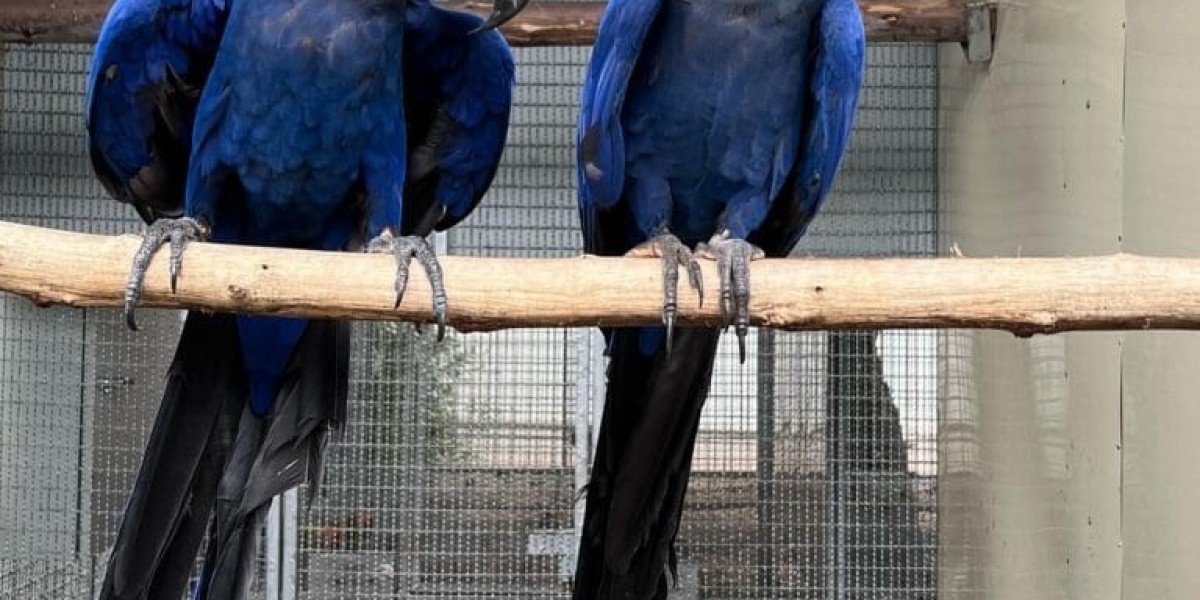The right cage can make the difference for a pet macaw. It can help strengthen the bonding between the bird and help it flourish.
Proper care also includes providing plenty of toys within the cage to keep the macaw engaged and entertained. The best way to choose the right cage for your pet is to make an informed choice.
Size
Macaws are the biggest domesticated parrots, and require a large cage that can accommodate their size. These intelligent birds need plenty of space to play and exercise, and they also enjoy having stimulating toys in their cages to keep them entertained throughout the day. The ideal cage should be at least 3 feet wide, 2.5 feet deep, and 6 feet tall.
The recommended minimum cage size for macaws is 1.5 to 2x the size of the bird's wingspan in order to allow them to move around and exercise. If you decide to add perches, toys or food stations to the cage, this will take up more space and leave less for the bird's wings.
In addition to the size of a macaw's cage, it is also important to take into consideration its height, as their tails can be as long as their body. It is important for the cage to be sufficient in height to stop the bird from scraping its tail against the walls of the cage when it turns.
The size of the bars is an additional factor to consider. Macaws are sturdy birds with sturdy feet and beaks, so make sure the bars of the cage are constructed of sturdy metal. They should also have enough space to keep your bird's fingers from becoming stuck. Also, you should avoid cage variations that might affect your bird's safety, such as round cages or cages that have decorative scrollwork.
A quality large bird cage is a good investment in the wellbeing and well-being of your macaw. The best cage will give your pet the space it needs to live a happy and healthy life. It will also allow you to spend time with him, and even interact with him outside of the cage.
Explore the range of macaw Accessories cages at Bird Cages 4 Less. From the larger Empire Macaw Cage 3157 to the deluxe Double Macaw Bird Cage with Divider We have a cage that is ideal for your bird and will look beautiful in your home.
Bar Spacing
The most effective macaw cages are those with broad bases, constructed of tough materials. These cages are ideal for birds who love to climb or hang out. These cages also provide security for your bird. These features can stop the bird from accidentally fleeing and also stop them from stealing toys or chewing on them they find inside their cage.
The spacing between the bars is a further aspect to consider when choosing a cage. The cage bars should not be too close together, since birds can get their feet or head stuck between them when climbing. This can be very risky for a bird therefore the bar spacing needs to be at least 1/2 inch apart or 3/8 inches for small finches. For larger parrots, the bar spacing should be either 1 inch or 3/4 inch.
The cage should have a wide, easy-to-open door. This will make it easier for you to clean the cage and also to access food and water. The front door must also be bird-proof. The cage should have an area for a grate and a perch since birds love to perch on the perch and the grate. The cage should be equipped with a sliding tray and a swing-out feeder door, and a bird guardrail.
The cage should be square or rectangular instead of round, since the odd angles can keep the bird's toes in place. This makes it difficult for the bird to move around. Avoid cages that have mesh made of plastic on the sides and tops since birds can easily chew through the mesh. Galvanized cages need to be thoroughly rinsed because the process can leave toxic zinc and metals on the wire.
A cage can bring your pet satisfaction or anger. Be sure to look at the factors mentioned above before you purchase an animal cage. If you pick the right cage for your pet both you and your pet will be content.
Toys
Macaws are intelligent birds, great talkers, and long-lived (up to 100 years). They can be destructive, which is why it's important to provide them with cages and toys which keep them occupied and entertained.
It is crucial to provide an array of toys for them to play with. They are social and like to interact with their human. It is crucial to provide them plenty of chewing material that will keep their beaks active. My cockatoo Lily, for example, was fond of shredding and turning books into "confetti", which she would then fling across the room. Sadly, I had to spend much of my time cleaning up the confetti each day!
You can purchase a variety of parrot toys, however you might already have a few in your home. Natural branches from outside, for instance, are an excellent source of entertainment and can be used as foot or hand toys. Untreated lumber that is cut off from your local home improvement store or a woodworking shop can be a cheap toy that will give your bird plenty of hours of entertainment. The most important thing is to have plenty of non-toxic, clean branches that can be strung from the bars of their cage and handed to them in small pieces. Some of these branches can be joined with strips of rope and sisal or cotton to create more toys.
If you have a cockatoo or another bird that isn't used to playing with toys, it may take some time and patience to convince them to accept and play with them. Initially keep the toys out of sight and slowly bring them closer. In time, the majority of birds will learn to play with toys that are not their own.
We have a range of stainless steel cages in various sizes that are ideal for Macaws. You can also buy an individual birdcage built for this type of large bird, so you can ensure that it is safe and sturdy enough to stand up to their strong claws and beaks.
Safety
Macaws are curious, intelligent birds that can be at risk of accidents in an unsuitable cage environment. Therefore, it is essential to consider safety when selecting a cage for your pet. A few critical considerations include the dimensions of the cage, bar spacing, and the materials used to construct the cage.
Macaws require plenty of space to move around and stretch their wings to engage in the natural behaviors that supports their overall health. A larger cage gives them the space they need, and provides a safe and secure barrier that prevents stress and boredom.
The ideal cage size is 5 to 6 feet in height and width. This will allow the bird to fly around freely which is crucial for its health. The cage must be made of sturdy materials like stainless steel to withstand the constant biting these large birds do.
Stainless steel cages are a popular choice for pet owners due to their durability and safety. They provide better ventilation and visibility while also protecting your macaw from getting caught in sharp metal parts that can be harmful to them. A lot of stainless steel cages have wider openings for the doors, which makes it easier to clean and interact with your pet.
Toys provide both enjoyment and enrichment for macaws. The rotation of toys on a weekly basis will stimulate your pet's mind and stimulate its natural foraging instincts. Additionally, toy items should be made of sturdy materials that can withstand the weight of a macaw flying and are safe from chewing or ingesting.
When building a cage it's important to avoid using materials that can be harmful to macaws. Some of the most commonly used toxic substances are paints and finishes that contain lead as well as other harmful chemicals. Make sure you choose cages made of non-toxic substances that comply with the regulations of the government.
Allow your macaws to interact outside of its cage. This helps them bond to their human companions, reduces stress and anxiety and promotes a healthy behavior. Ideally, socialization should be done in a quiet, dark place away from the noise of other pets or children within your home.








